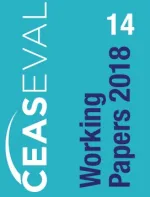Politicisation of immigration in Spain: an exceptional case?

CEASEVAL Working papers No.14
Spain is an exceptional case. When concern about immigration has grown, it has done so relative to the increase in arrivals at the southern border, meaning it relates more closely to border concerns than immigration as an issue of coexistence. The analysis of the main political debates on immigration leads us too to speak of a degree of uniqueness: a civil society that was especially mobilised in favour of immigration and refugees; multilevel confrontation between the central state, on the one hand, and cities, autonomous communities and civil society, on the other; and media coverage that is not always accompanied by in-depth discussion in parliament or by immigration becoming a topic in electoral debates. If we analyse the content of the debates, in both cases immigration and refugees are quite clearly considered to be the EU’s responsibility. Public opinion, the media, and the main parliamentary differ on the extent to which Spain should do more. While the media are clearly in favour of greater involvement, the positions of the political parties diverge: the PP has tended to consider that Spain has already done enough while PSOE and Podemos favour greater co-responsibility. In this sense, we may conclude that in the PP’s case the burden frame dominates – though sometimes mitigated by the humanitarian frame and coloured at times by the legal frame when refugees are spoken of – while in the cases of the PSOE and Podemos, the legal and humanitarian frames dominate. Depite a quite exceptional political context, policies are not as different as in more exclusionary environments: the relocation quotas remain unfulfilled despite the Supreme Court’s condemnatory ruling and the refugee reception system leaves much to be desired.
Keywords: Spain, immigration, relocation quota, politicisation